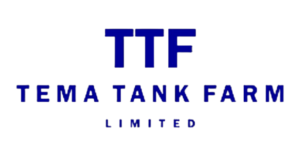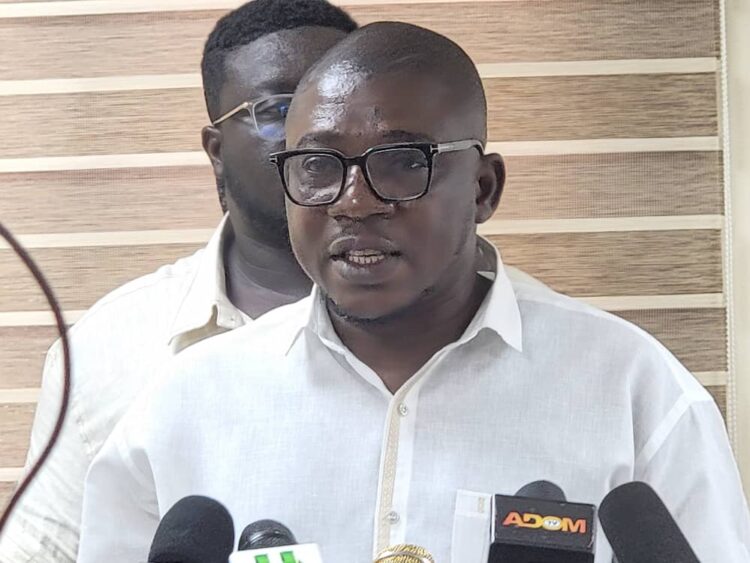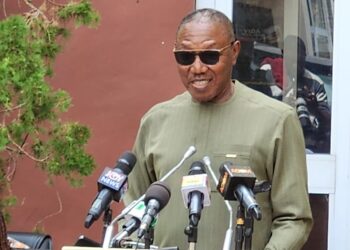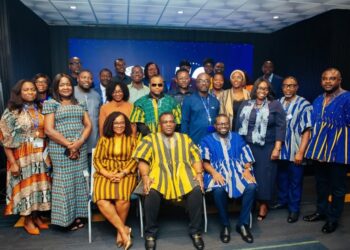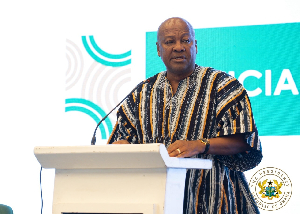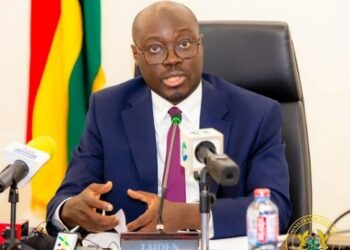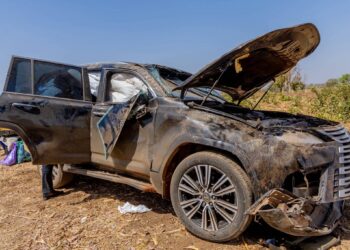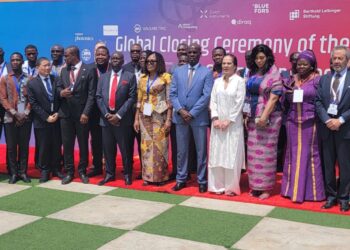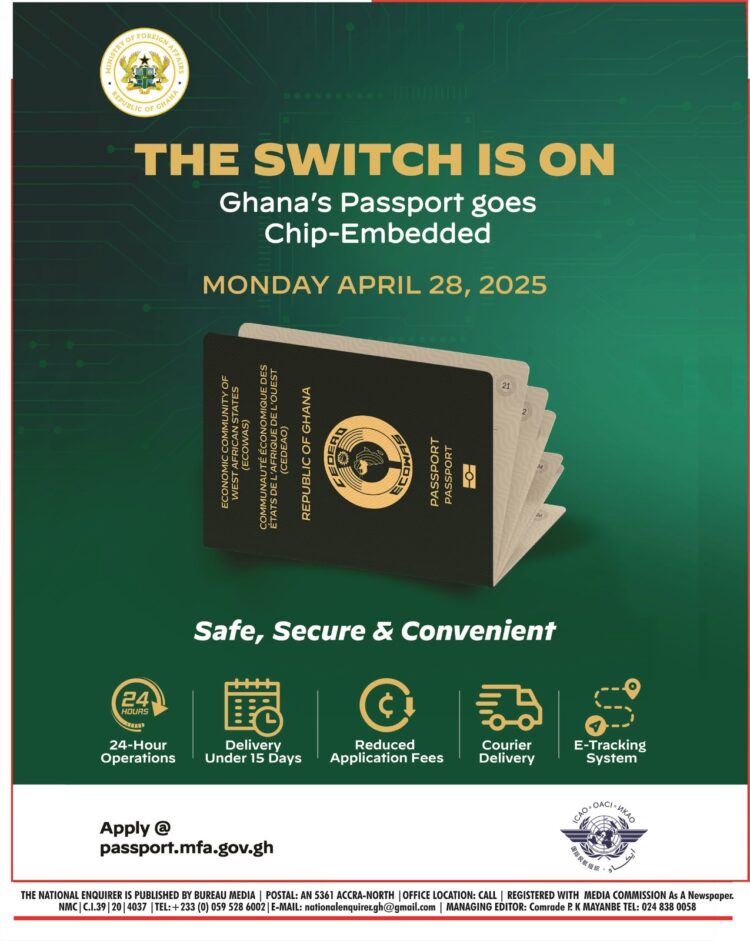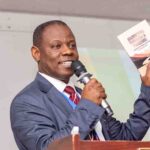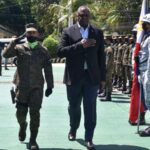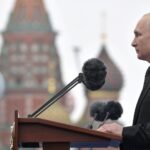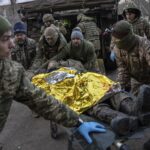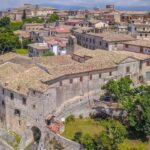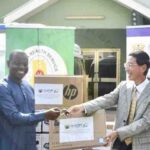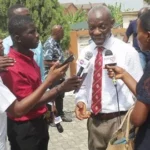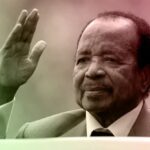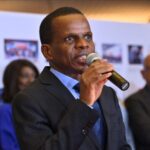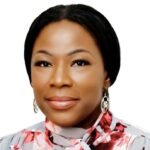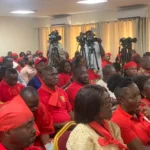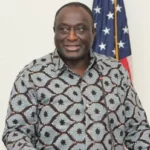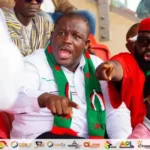Third Force Alliance , a group made of PNC, CPP, GCPP, GFP and APC have taken a swipe at the Ghana Bar Association and the NPP over their stance on the suspension of Chief Justice Torkonoo.
Addressing a news conference in Accra on Tuesday, the Convenor of the group, Ishak Awudu stressed thar President Mahama has Breached No law as far as Article 146 is concerned.
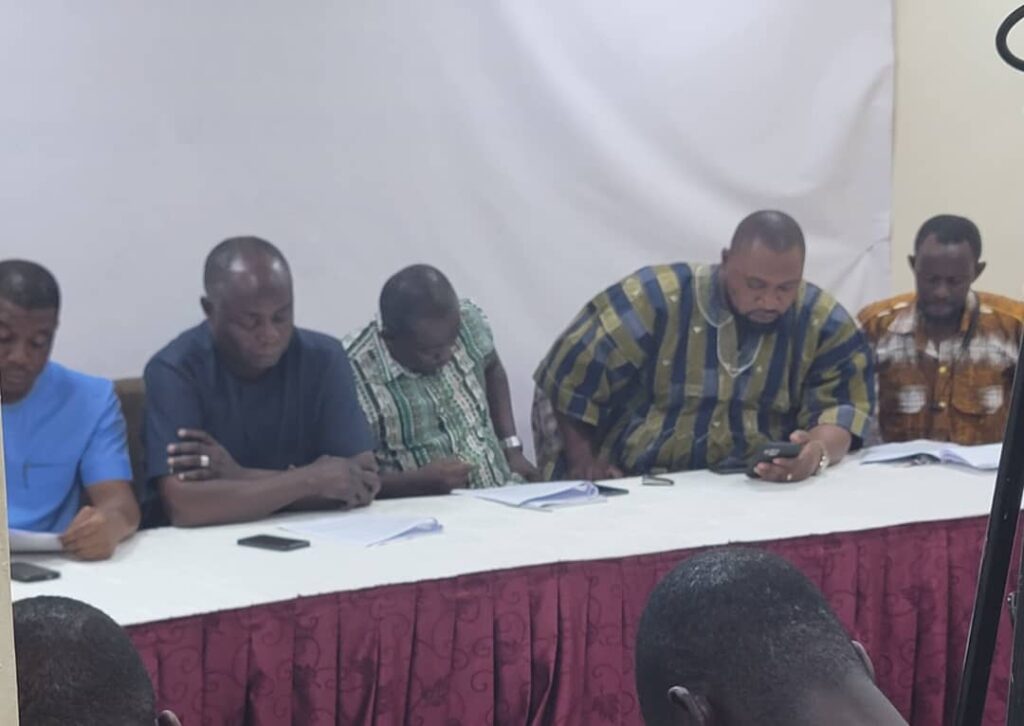
Members of the alliance at the Press Conference
“We wish to state, at the outset, that the constitutional processes set out under Article 146 for the removal of Justices of the Superior Courts, including the Chief Justice, are clear, detailed, and provide significant safeguards against arbitrary removal. In this matter, there is no indication that the President, His Excellency John Dramani Mahama, has acted outside the bounds of the Constitution. The Supreme Court itself has interpreted Article 146 to require a preliminary determination of a prima facie case in consultation with the Council of State before the President may set up a committee under Article 146(6). That procedure, to our knowledge, has been duly followed”, Mr. Awudu emphasized.
He explained that the framers of the 1992 Constitution did not envisage that one day there will be a President of the Republic called John Dramani Mahama and a Chief Justice called Gertrude Araba Essaba Torkonoo who would have some petitions written against her.
“So it is important to state that the invocation of the provisions of Article 146 of the
1992 Constitution of the Republic of Ghana must not be about the personality of President John Dramani Mahama or that of Madam Getrude Torkornoo but rather about the rule of law, good governance practices and the sanctity of the constitution which is held to be the supreme law of our land. And it is the sacred duty of every citizen to contribute to defending and protecting the constitutional democracy that we have chosen for ourselves”, he explained.
Source:www.senaradioonline.com
Below is the full statement
PRESS CONFERENCE TO ADDRESS THE VARYING SHADES OF OPINIONS AND
COMMENTARY ON THE SUSPENSION OF THE CHIEF JUSTICE OF THE REPUBLIC OF GHANA
Good morning ladies and gentlemen , you are most warmly welcome to the International Press Center for today’s press encounter at the behests and invitation of the THIRD FORCE ALLIANCE-GHANA.
For the records, the THIRD FORCE ALLIANCE-GHANA is made up registered political parties in the country comprising the CPP, PNC, GFP, GCPP and APC. These parties in no uncertain terms have been actively involved in Ghana’s political discourse over the years contributing to building the kind of democratic society that we envisage as a people.
The ALLIANCE has followed with keen interest the ongoing developments concerning the constitutional processes triggered by petitions for the removal of the Chief Justice. These events have stirred public discourse and raised important questions about the relationship between judicial independence and judicial accountability in our democratic order.
To the extent that the Ghana Bar Association would suddenly be awakened from its slumber to share its views on this raging matter and for the New Patriotic Party to suspend its socalled ‘Thank You Tour’ in an attempt to rally its forces to demonstrate against the decision to suspend the Chief Justice speaks volumes about how the matter has been perceived and received by segments of the Ghanaian society.
As guardians of Ghana’s constitutional vision, we believe this moment calls for calm reflection, fidelity to due process, and a recommitment to strengthening the institutional frameworks that underpin the rule of law.
We wish to state, at the outset, that the constitutional processes set out under Article 146 for the removal of Justices of the Superior Courts, including the Chief Justice, are clear, detailed, and provide significant safeguards against arbitrary removal. In this matter, there is no indication that the President, His Excellency John Dramani Mahama, has acted outside the bounds of the Constitution. The Supreme Court itself has interpreted Article 146 to require a preliminary determination of a prima facie case in consultation with the Council of State before the President may set up a committee under Article 146(6). That procedure, to our knowledge, has been duly followed.
Ladies and Gentlemen of the media, to this end we at the THIRD FORCE ALLIANCE-GHANA have been compelled to add our voice to the discourse, not to support or kick against the decision but to speak in defence of the Constitutional Democracy that we all subscribe to as Ghanaians. The framers of the 1992 Constitution did not envisage that one day there will be a President of the Republic called John Dramani Mahama and a Chief Justice called Getrude Araba Essaba Torkonoo who would have some petitions written against her.
So it is important to state afront that the invocation of the provisions of Article 146 of the
1992 Constitution of the Republic of Ghana must not be about the personality of President John Dramani Mahama or that of Madam Getrude Torkornoo but rather about the rule of law, good governance practices and the sanctity of the constitution which is held to be the supreme law of our land. And it is the sacred duty of every citizen to contribute to defending and protecting the constitutional democracy that we have chosen for ourselves.
Ladies and Gentlemen, we are not here to discuss or dabble in the genesis of the matter at hand. We believe very much in the wisdom and judgement of the 31-member Council of State clothed with the responsibility of advising the President on an issue as important as the establishment of a prima facie case against the Chief Justice. As much as the President has some appointees in the Council of State, the near unanimity in the decision taken to suspend the Chief Justice pending further inquiry into her conduct as alleged by the three petitioners cannot be said to have been politically motivated or influenced.
The THIRD FORCE ALLIANCE-GHANA is therefore bemused at the decision by the New Patriotic Party to turn itself into a vanguard to offer some support to the suspended Chief Justice and by extension to oppose the decision by the President to exercise a constitutionally guaranteed power. Bizarre enough, the NPP and its surrogates are not minded about the dictates of the constitution but are only interested in stoking political and gender sentiments in order to cause disaffection for the President and his government. This is highly disingenuous and hypocritical.
We are sufficiently convinced that those who received this decision in good faith and in high spirits quite outweigh and outnumber the NPP and its allies and surrogates who appear to be engaged in a wild goose chase. Little wonder therefore that the much publicized and advertised demonstration held yesterday was a monumental flop and reflective of the sunken image of the New Patriotic Party as witnessed in the results of the 7th December 2024 elections.
To watch a whole MICRO minority leader, Osahen Alexander Afenyo Markin push and shove a police officer without any provocation paints nothing but a clear picture of a group of people trying desperately to build its tattered political brand. Not too long ago, public places which were conveniently described as security zones under President Akufo Addo’s have suddenly become comfort zones for the NPP to picket and to carry out their ill-informed demonstrations. For the Commander-In-Chief of the Ghana Armed Forces in the person of President John Dramani Mahama to allow for citizens to peacefully demonstrate without any harassment and brutalization is a mark of a man committed to the rule of law and democracy. Such a man cannot by the stretch of anyone’s imagination be accused of abusing and desecrating the constitution which he swore an oath to protect and uphold.
Friends from the media, maybe we need to remind the NPP that under the tenure of President Akufo-Addo, the president had the opportunity of exercising the same powers in suspending and dismissing public officers including Judges as well as an Electoral Commissioner and her Deputies.
Ladies and Gentlemen, leadership is both a blessing and a burden. It requires the courage to confront challenges head-on and the wisdom to take decisive action, even when such action is unpopular or controversial. There’s an age-old truth: when the leader does not address a problem, the problem becomes a leader. It creeps into the foundations of justice, trust, and order, gradually taking control until it defines the state itself.
President John Dramani Mahama, in his second coming, has proven yet again that he understands the sacred responsibility of leadership — to lead not just with authority, but with accountability, decisiveness, and fidelity to the Constitution. His bold action in responding to the petitions against the Chief Justice, Her Ladyship Gertrude Torkornoo, is a defining moment in the annals of Ghana’s democracy. It sends a strong message: no one is above the Constitution, and no institution is too sacred to be scrutinized.
For too long, we have watched problems in our public institutions fester because those with the mandate to act chose silence over accountability. In that silence, problems grew roots. They gained influence. They became the new leaders — unchecked, unchallenged, and often, untouchable. But President Mahama has reminded us of the real essence of leadership — it is not about titles or applause, but about responsibility and action.
The suspension of the Chief Justice is not a celebration of anyone’s downfall. It is a celebration of constitutionalism. It is a moment where Ghana affirms that even the judiciary — the last hope of the common man — must be guarded against perceptions of impropriety and public mistrust. President Mahama’s decision is not one of vengeance or partisanship, but a renewal of faith in the rule of law.
Leadership demands tough calls. It demands that the leader sees what others ignore, hears what others are silent on, and acts when others hesitate. In this moment, John Mahama has acted not just as President, but as a guardian of Ghana’s democracy. He has ensured that no problem becomes bigger than the state — not even one hidden in the robes of justice.
As citizens, we must support leaders who are bold enough to act and wise enough to know when to. We must remember that the future of this country rests not in the hands of the powerful, but in the actions of those who are willing to hold the powerful accountable.
President Mahama has spoken not with words, but with action. And in doing so, he has shown us that in his leadership, problems will never be allowed to become leaders.
That said, the ALLIANCE believes that this is a moment for sober reflection, not political escalation. The call to protest risks needlessly politicizing what is, at this stage, a constitutionally regulated process that has not yet arrived at any finding of wrongdoing. We caution against substituting mob rhetoric for legal procedure. We believe such demonstrations, however well-intentioned, may undermine public confidence in the judicial process and the independence of the institutions charged with handling this sensitive matter.
Nevertheless, this situation has exposed certain gaps in our constitutional architecture that require review and reform. In the spirit of constructive nation-building, the ALLIANCE wishes to propose the following improvements to the constitutional framework for judicial accountability:
- Independent Assessment Committee for Prima Facie Review
We recommend that the initial determination of a prima facie case, even in the case of the Chief Justice, be conducted by an independent judicial oversight body rather than by the President in consultation with the Council of State. This will ensure greater impartiality and remove the appearance of executive influence in judicial removal proceedings. - Statutory Timelines for Article 146 Proceedings
The current framework does not impose any clear time limits for the various stages of proceedings under Article 146. We propose amendments to require that all determinations—whether of prima facie merit, committee composition, investigation, or reporting—be conducted within fixed statutory timelines to prevent abuse or unnecessary delay. - Publication of Committee Reports Post-Determination
While we accept the need for in-camera proceedings to protect judicial dignity and institutional integrity, we propose that the final report of the committee, with necessary redactions, be published once a decision has been made. This will enhance transparency and public trust in the process. - Establishment of a Judicial Integrity Commission
The ALLIANCE believes that a standing Judicial Integrity Commission, independent of the Judicial Council and insulated from political interference, should be created to investigate complaints against judges and recommend disciplinary measures, including removal, in appropriate cases. - Clarification of Grounds for Removal
The terms “stated misbehaviour,” “incompetence,” and “infirmity” are open to broad interpretation. We propose that these be more clearly defined, either through constitutional amendment or through enabling legislation, to reduce the risk of capricious or politically motivated petitions.
The ALLIANCE urges the recently appointed Constitutional Review Commission to take a critical and courageous look at the existing constitutional provisions governing the judiciary, particularly Article 146. As a country, we must strike a more coherent and principled balance between safeguarding judicial independence and ensuring meaningful judicial accountability. The current framework, while protective against executive overreach, still allows for opacity, delays, and potential manipulation—especially where the process is initiated or influenced by political actors. We call on the Commission to consider reforms that entrench procedural transparency, limit political interference, and introduce independent oversight mechanisms that uphold both the integrity of the judiciary and the public’s right to justice.
The ALLIANCE reiterates our unwavering commitment to the rule of law, constitutionalism, and the independence of the judiciary. We support all lawful means to hold public officials— including judges—accountable. But accountability must be pursued through institutional processes, not political theatre.
We urge all Ghanaians to allow due process to run its course and resist attempts—whether from the ruling party or the opposition—to weaponise judicial proceedings for partisan gain. Let us safeguard our democracy not by shouting over its institutions, but by strengthening them.
Ghana will surely rise again. Long live our democracy, long live our Dear country Ghana.
